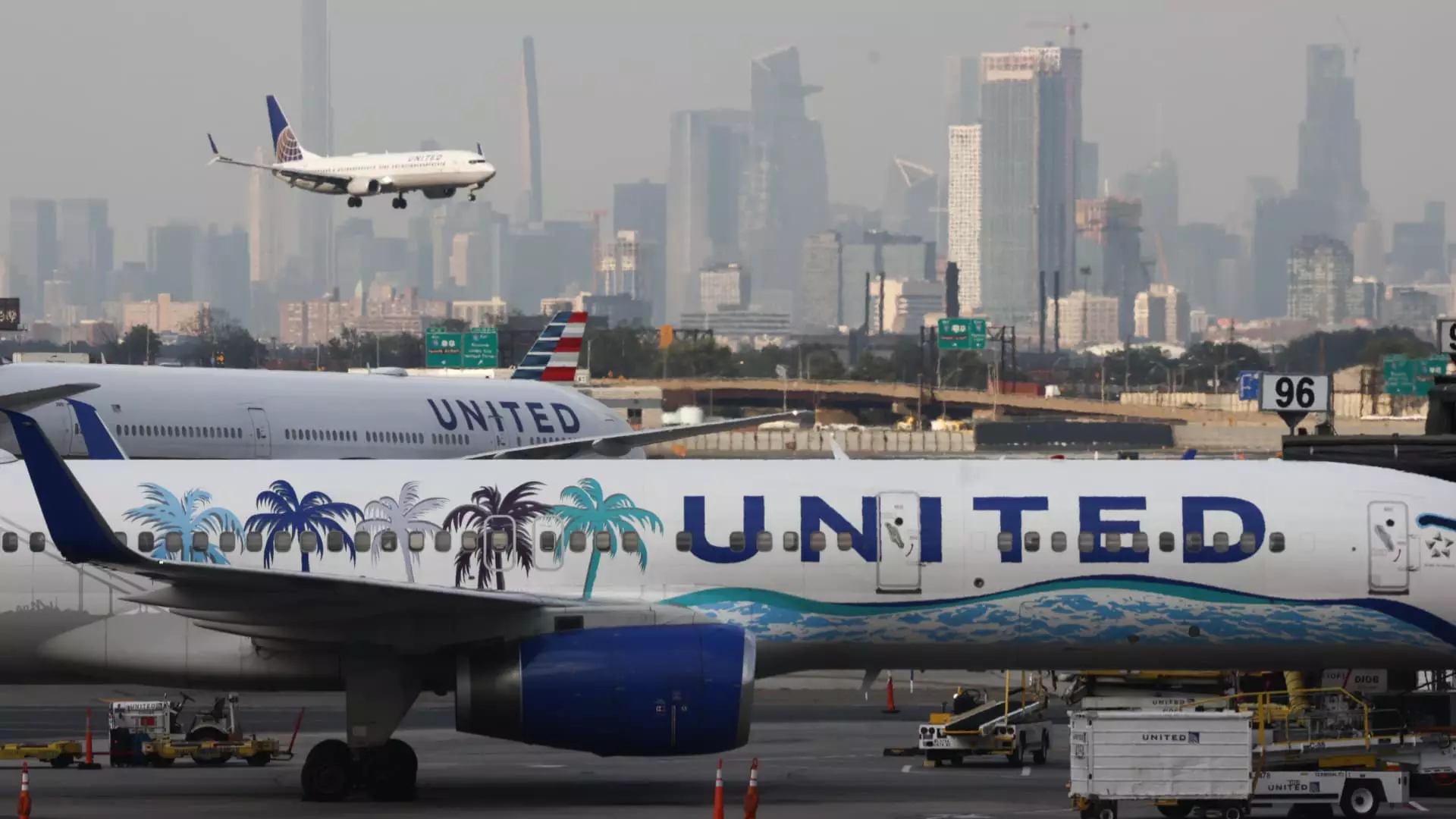The recent decline of U.S. airline stocks, plummeting to their lowest points since late last year, signals more than just a momentary setback; it reflects deeper economic anxieties that have begun to cast shadows over one of the few sectors that had been thriving. The news, catalyzed by a series of tariff increases initiated by the Trump administration against Mexico, Canada, and China, has sparked a domino effect. Such changes are not merely trade policy shifts; they are harbingers of potential price hikes that could cool consumer enthusiasm—an unsettling prospect for an industry that largely rides on the waves of consumer spending and discretionary travel.
Recent data from the U.S. Commerce Department revealing a drop in consumer spending for the first time in nearly two years adds to the cautionary tale. When the very backbone of the airline industry—its passengers—begins to withdraw their wallets, it positions the entire sector at risk. The reported decline in retail sales only amplifies these concerns, creating a perfect storm that airlines may struggle to navigate. While companies like United Airlines and Delta still report solid performance in business travel segments, a disturbing trend has emerged: the more price-sensitive domestic customers are beginning to shy away from purchasing tickets.
The imposition of tariffs can often seem like a calculated economic strategy, but the rapid backlash indicates a disconnect between policy and market realities. Executives from major retail chains like Best Buy and Target have issued stark warnings about the potential repercussions, suggesting that increased tariffs could translate into soaring prices for everyday consumers. This is particularly troubling for airlines that have relied on a growing number of travelers exploiting lower ticket prices. High prices could mean dwindling demand, especially in domestic markets where leisure travelers often prioritize cost over convenience. Airlines might discover that their once-reliable revenue streams could dry up as families choose alternative modes of transportation or reconsider their travel plans altogether.
The Silver Lining Amidst the Gloom
Despite the gloom, some industry leaders insist that not all is lost. United Airlines’ CFO, Mike Leskinen, maintains a guarded optimism, claiming that while domestic leisure travel is “kind of okay,” international leisure remains robust. His comments reflect an important insight: amidst tariff-induced chaos, there is still a market for travelers seeking enriching experiences abroad. This suggests that the industry might pivot, strategically focusing on international routes where demand remains higher. But therein lies the rub: how long can the industry sustain its performance if domestic travelers, the very heart of the market, are being squeezed by inflationary pressures?
In these turbulent times, understanding the delicate interplay between economic policy, consumer behavior, and airline profitability will be crucial. If tariffs continue to disrupt the balance, the cheerful skies of airlines might soon turn to stormy turbulence, leaving many wondering whether today’s flight delays foretell a broader systemic crisis in air travel.

